Byline
 |
 |
 |
 |
 |
Mark A. Foster, Ph.D., the writer and publisher of this blog, is a tenured full professor of sociology at a suburban Kansas City community college, the developer of The MarkFoster.NETwork™, the sole proprietor of Mark A. Foster Services™, the host of The Dr. Mark Foster Show, and the founder of The Emancipated Autism Project™, The Institute for Structurization Theory™ and Unities of All Things™.
Dr. Foster has a Ph.D. in sociology and history and an M.A. in sociology. As a sociologist, he specializes in the subfields of the sociology of religion, social theory, public sociology, and clinical sociology. He has been teaching sociology in higher education since 1980 (full-time beginning in 1985) and is a former president of the Kansas Sociological Society. He is, in addition, a cultural historian.
Furthermore, Foster has a Bachelor of Arts in Journalism (A.B.J.) degree with a major in magazine journalism and an Associate in Arts (A.A.) degree with a concentration in English. As a journalist, his current activities lie principally in the area of advocacy journalism. Previously, however, he was on the staff of three radio stations as, variously, a newscaster, a reporter, a news writer, and a producer.
Passionately concerned with issues of human, including civil, rights, Foster actively promotes social justice, especially for Autists. Even as a junior high (middle) school student, in the late 1960s, he advocated, with the Students Democratic Coalition, for the rights of migrant farm workers, picketing a supermarket and distributing pledge cards to boycott California grapes.
Theoretically, and in terms of sociological praxis (action informed by radical theory), Foster has developed a critical realist perspective called Structurization Theory™ The ontology of that theory is The Unicentric Paradigm™.
Foster coined the term, neurelitism, an acronym for neurological elitism, intending it as a parallel concept for Autists and cousins (the similarly dissimilar) to racism for race, sexism for gender, homophobia for sexual orientation, ageism for age, etc. You are invited to read his lexicon of ideologies of oppression, including neurelitism.
In the early 1960s, Foster was, as explained in his autobiography, diagnosed as an Autistic. However, Autism in children was then called childhood or pediatric schizophrenia. In 2007, when Foster was 51 years old, that diagnosis was affirmed as Autism spectrum disorder (the current name). The confusions of his difficult childhood, filled with neuroleptic drugs and electroconvulsive therapy (“shock treatments”), and his frequently troublesome adulthood, characterized by a frequent disorientation, was finally resolved. He became, in effect, class conscious and has, with this realization, been blogging his life’s subtext as an Autistic.
While Dr. Foster is, concerning his own moral standards, fairly traditional, his views on most issues would be considered quite radical by many people. As a cultural radical, he considers his ethical norms to be exclusively connected with his faith commitment. He rejects the proposition that persons outside of one’s religious community should be expected to conform to its standards.
Why does Foster say he is a cultural, but not a social, liberal? Unfortunately, most Americans, living in a country which is largely right of center (compared, say, to much of Europe), have collapsed the left under liberalism. Historically, however, Marxism and social liberalism have been very much at odds.
Although Foster does not agree with abortion in many situations (except in cases of medical emergency, rape, or incest), he is neither pro-life nor pro-choice. Instead, he is pro-justice. As a radical, he rejects the socially liberal discourse (whether conceived as liberalism/progressivism or conservatism) of “natural rights.” All rights, including the reproductive rights of the mother and the life of the fetus, are determined by God’s Will.
Functionally, however, Foster’s view would, using current popular cultural categories, approximate the positions of the pro-choice movement. This is not, however, because he is “pro-choice” but because he does not see how justice in this area could be legislated. Furthermore, Foster would rather see people educated not to have elective abortions than to return to the time when they were outlawed. Legislation is not the only means of dealing with complex social issues.
While Foster is heterosexual, he remains a vigorous proponent for the rights of all LGBT (lesbian gay bisexual transgendered) persons or, using the more recent term, GSD (gender and sexual diversity). He would, for instance, like to see marriage taken out of state control and replaced with civil unions (for any combination of adults, of whatever number, who would like one). The issue of whether to call those civil unions “marriages” should be a private matter, in his view, to be decided by the individuals concerned or, if relevant, their religious organizations.
Here is more information:
- Sex: Male
- Birthday: February 27, 1956
- Hometown: Born in New York, NY (Manhattan). Grew up in the north Bronx, in Bayside, Queens, and in Nassau County on Long Island.
-
Education:
Ph.D. (sociology and history), Mississippi State University, 1984M.A. (sociology), C.W. Post Campus of Long Island University, 1981A.B.J. (magazine journalism, sociology, and English), University of Georgia, 1978A.A. (English), Nassau Community College of the State University of New York, 1976
-
Honors:
Past president, Kansas Sociological SocietyAlpha Kappa Delta (sociology honor society)Phi Alpha Theta (history honor society)Phi Theta Kappa (two-year college honor society)
- Political Views: Public Sociology, Advocacy Journalism, Conscientization, New Critical Social Theory, Neurodiversity
- Religious Views: Baháʾí Faith
- American Sociological Association, Society for the Study of Social Problems, Sociologists without Borders, Justice Studies Association, Association for Applied and Clinical Sociology, Autistic Self Advocacy Network, Autism Society of America, Transformative Studies Institute, Society for Creative Anachronism
- Interests: critical theory, critical social theory, social theory, religious studies, sociology of religion, public sociology, clinical sociology, sociological practice, ventriloquism, poetry, philosophy, Marxism, mysticism, nominalism, social constructionism, poststructuralism, postmodernism, emerging movement, critical pragmatism, neopragmatism, critical pedagogy, radical pedagogy, praxis, dialectic, emancipation, new religious movements, website development, nonviolent revolution, nonviolent resistance, human rights, United Nations, Autism, Autistic, Autist, theology of liberation, liberation theology, neoliberal theology, neocritical theology, socialism, cultural liberalism, tikkun okam, tikkun HaOlam, meditation, Marian Lippitt, Henry Weil, Emogene Hoagg, deconstruction
- Favorite Music: techno/electronica, 1960s folk music, and most anything except for country
- Favorite TV Shows: What’s My Line? (GSN), I’ve Got a Secret (GSN), American Morning (CNN), Babylon 5 (previously on SciFi)
- Favorite Movies: Wizard of Oz, Stargate
-
Favorite Books: Summa Logicae (William of Ockham), Consequences of Pragmatism (Richard Rorty)
The critical pedagogy which I support and practice advocates non-violent dissent, the development of a philosophy of praxis guided by a Marxist humanism, the study of revolutionary social movements and thought, and the struggle for socialist democracy. It is opposed to liberal democracy, which only serves to facilitate the reproduction of capital. It advocates a multiracial and anti-imperialist social movement dedicated to opposing racism, capitalism (both in private property and state property forms), sexism, heterosexism, hierarchies based on social class, as well as other forms of oppression. It draws its inspiration from philosophers of revolutionary praxis such as Paulo Freire, Raya Dunayevskaya, and other philosophers, social theorists and political activists and supports all those who yearn and struggle for freedom. Critical pedagogy is opposed to both state terrorism and individual acts of terrorism. As Freire writes in The Pedagogy of Freedom, “Terrorism is the negation of what I call a universal human ethic.” Critical pedagogy is driven by the engine of class struggle in both national and international arenas.
— Peter McLaren (unknown-present) -
As a sociologist and historian (with a Ph.D. in sociology and history and an M.A. in sociology), I specialize in the subfields of the sociology of religion, social theory, public sociology, clinical sociology, and radical history. I have been teaching sociology in higher education since 1980 (full-time beginning in 1985) and am a former president of the Kansas Sociological Society.
I also have a Bachelor of Arts in Journalism (A.B.J.) degree with a major in magazine journalism and an Associate in Arts (A.A.) degree with a concentration in English. As a journalist, my current activities lie principally in the area of advocacy journalism. Previously, however, I was on the staff of three radio stations as, variously, a newscaster, a reporter, a news writer, and a producer.
Passionately concerned with issues of human, including civil, rights, I actively promote social justice, especially for autistics. Even as a junior high (middle) school student, in the late 1960s, I advocated, with the Students Democratic Coalition, for the rights of migrant farm workers, picketing a supermarket and distributing pledge cards to boycott California grapes.
I coined the term, neurelitism, an acronym for neurological elitism, intending it as a parallel concept for autistics and cousins (the similarly dissimilar) to racism for race, sexism for gender, homophobia for sexual orientation, ageism for age, etc.

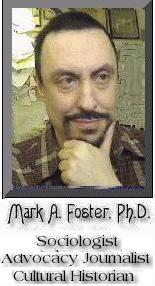





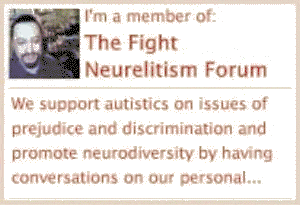
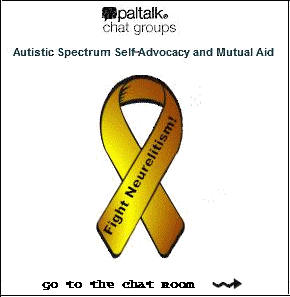












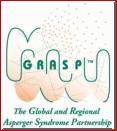



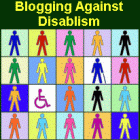






Trackbacks
Comments are closed.